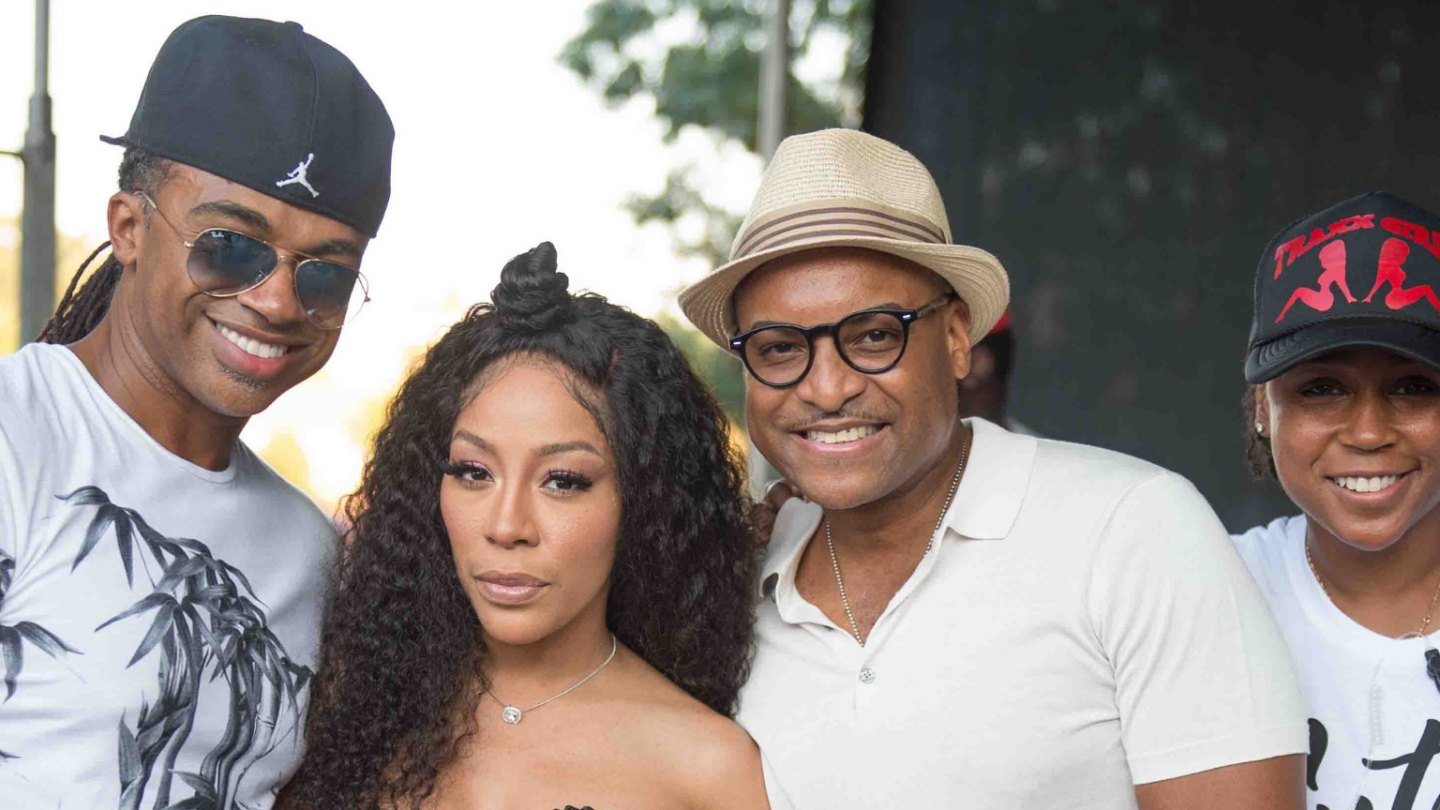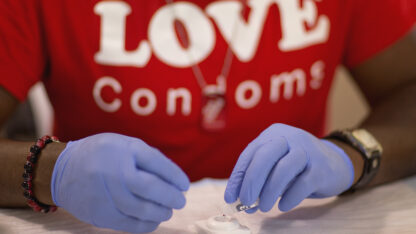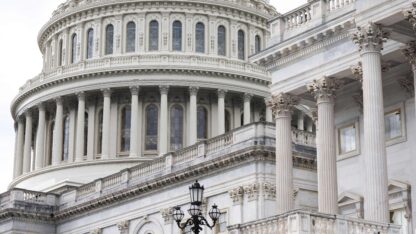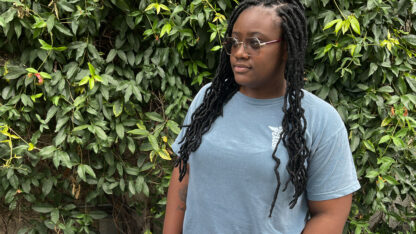Bishop Oliver Clyde Allen is the founder and pastor of The Vision Church of Atlanta, one of the largest LGBTQ-affirming churches in the country with a predominantly Black congregation. He is also the executive director of The Vision Community Foundation, which provides HIV prevention training to faith leaders and free HIV testing.
Allen wears a third hat as well: he’s co-managing partner of Atlanta Black Pride Weekend, taking place Aug. 31-Sept. 4 at locations throughout the city.
“Getting corporate spaces to support Black Pride is a part of the work of creating inclusion,” he told WABE. “A partnership is the currency of possibility. Without it, you are leaving out a key component of changing society.”
Allen’s work behind the pulpit, in HIV prevention and education, and through Atlanta Black Pride is a natural fit in a city with such a large Black and LGBTQ population.
In 2020, over 55% of women and 51% of men infected with HIV lived in the South. According to the CDC, about 1 in 51 people in Atlanta has HIV at any given time. That is why the nation’s leading infectious disease organization named HIV an epidemic in the populous city, and it can often feel like a topic nobody wants to address openly.
In many ways, the city is at the center of this epidemic; nearby cities come nowhere close to the rate of HIV infection in Atlanta, and it has one of the highest in the world.
According to the nonprofit SisterSong, the leading reasons for this epidemic include inadequate sex education, high poverty rates, prevalent drug and substance abuse, and stigmatization.
HIV disproportionately impacts Black LGBTQ people and Black women in Atlanta more than it does in most American cities, and though HIV does not discriminate, those two groups in Atlanta have seen their infection rates increase over time.
Allen believes that this kind of health disparity is a rallying human rights cause for the entire Atlanta community: “We’re looking for help from the government. We have all the tools we need; we just need the will. We need to see it as whether or not it’s directly impacting us; it is something that impacts us all. We are a part of a whole.”
Last December, Atlanta City Council passed a resolution to make Atlanta a Human Rights City and “to urge government officials at all levels of government to more fully and effectively implement policies that serve to protect the human rights of all citizens; and for other purposes.”
For years, Atlanta has prided itself as a beacon for civil rights in the South. Dr. Martin Luther King, Jr., was born in Atlanta, and both he and his father pastored historic Ebenezer Baptist Church. The presence of prominent Black civil rights icons has always greatly influenced the city’s landscape and locality, but a culture of inequality still resides in the streets of what is now considered an official Human Rights City.
“I think we underestimate the power of centering ourselves between justice and joy,” Allen said. “The hallmark of white supremacy, of homophobia, is self-hate or a lack of joy based on a mirror against yourself. Pride exists between joy and justice. We should not pit one against the other. For me, justice is a part of joy.”
The Monday before Atlanta Black Pride weekend was the 60th commemoration of King’s 1963 “I Have A Dream” speech during the March on Washington for Jobs and Freedom.
The central message from the March on Washington was there’s still so much work to be done, and Allen says a lot of that work can start in Atlanta.









